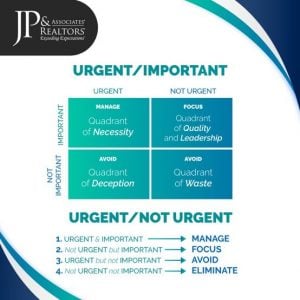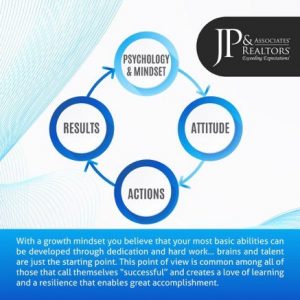
by Rick Davidson | Dec 10, 2018 | Coaching, Don't Settle, Dreams, Goal Setting, Goals for 2019, Habits, JPAR, Real Estate, Service, Sucess Goals
I spent some time this week in our Austin, Texas market where one of our REALTOR® team leaders is also a “coxswain” and a rowing coach. He was telling me a story about a new rower, who was placed on a boat with 8 others… he noticed she appeared to be working very hard and sweating profusely, yet her technique was so off it wasn’t helping the team.
Can you relate to a time where you’ve been working hard and not getting the result you intended?
A rowing team – and your business – needs more than just quality, skilled resources. You also need all your resources in the right seats, doing the right things.
Here’s the thing I learned about rowing: in an eight-person boat, each rower has one oar—four on port and four on starboard. If one side pulls harder that the other side, the boat turns. If one side’s oars are raised higher than the other side, the boat tips. In order to find the set and create swing, everyone must work together to balance the boat and have exact timing. Your hands must be at exactly the right height as you slide up to the catch. Every oar has to drop into the water at the exact same time. Everyone needs to pull at equal pressure. All the blades need to come out of the water and release in unison. Any deviation disrupts the boat.
So, what can we learn?
First, have a clear direction, but an easy hand on the steering
The “coxswain” job is to keep the boat on course and steer the straightest line possible. Steering too much means zig-zagging over the course and rowing far more than 2,000 meters, which adds to time. The trick is to keep the end in sight and steer to a center point far down course, not trying to keep coming back to the center every stroke. To do this, the coxswain calls out increased pressure for a few strokes on one side of the boat or the other to correct the course rather than use the rudder, which slows down the boat.
Learning: High-performance teams always keep the end in sight and know the ultimate objectives of their work. Without a clear picture of the goal, teams thrash with process and fail to achieve proper alignment in their activities. Going in the wrong direction as fast as you can doesn’t get you any closer to the finish.
Second, it’s not how hard you work, it’s how hard you work together
It turns out that pulling as hard as you can, without pulling together, actually slows the boat down. Imbalanced power will veer the boat one direction and throw off the timing of the catch and the release. Uncontrolled straining at the oar can tip your weight left or right and toss the boat side to side. A successful team pulls in perfect balance and with perfect timing.
Learning: Successful teams know that performance is a function of collaboration and coordination, not a sum of individual effort. Knowing how your contribution is affecting the final outcome and staying highly aware of what others are doing while staying in sync is critical to delivering results. Reacting quickly, deliberately and in a coordinated fashion allows teams to adapt to changes, handle new information, and stay on target.
Make it a powerful week and looking forward to hearing your success stories.
PS: Are you looking for a playbook that is guaranteed to help up your personal mastery, business mastery or marketing mastery? If so reach out to us at [email protected]
Need a one on one coach? See if coaching is right for you, schedule a complimentary consult at www.jparcoaching.net

by Rick Davidson | Nov 19, 2018 | Appointment Setting, Best Practice, Goal Setting, Habits, Mindset For Success, Real Estate, Service
As we head into this Thanksgiving week, many of you have probably started putting together your shopping list to prepare your favorite family recipes. Perhaps some of you have even already fought the grocery store lines while others cross their fingers that the store will be open Thanksgiving morning to get the last minute missing ingredient. While you balance the thoughts of the pending home invasion of long-lost relatives to your personal desires to increase your productivity from 0 to 20 after being inspired by Travis Robertson’s motivational lessons. Whether you’re the one who has already fought the grocery store line and has their 2019 business plan in its final review or you are secretly dreading putting pen to paper to write out next year’s goal and all the while are hoping there is enough butter to make grandma’s famous mashed potatoes, here is a “recipe” to win your new year.
Warning… this is a long one, full of nuggets. It may take a few passes to pick up the points that apply to you and your current situation. Are you interested in GROWTH or COMMITTED to growth? This is one you may want to bookmark and revisit from time to time.
As you think about it, your favorite dishes more than likely aren’t just thrown together but have been perfected over time. From heating the oven to adding the extra teaspoon of ground pepper to the final cooling time, everything is deliberate. Your real estate practice is the same way. What is your real estate business secret recipe? Perhaps you don’t have one or are just looking to perfect your own. Unlike grandma, I’m here to share my “secret,” but not so secret recipe for success!
Before you even begin to cook, you will need to pull the recipe out read it over a time or two and prepare a plan of action. What ingredients do you need to shop for, when will you start the oven in order to ensure the food is prepared just in time for Aunt Mildred to show up fashionably 30 minutes late.
Step 1: Mindset and Time Management
“What Would Happen When You Shift Your Focus?”

This first image of today’s blog comes from the work of Stephen Covey who wrote a great book about how to put first things first. My biggest learning was “understanding that increasing my personal productivity is a process, not a destination.” Where are you spending the majority of your time? Are you spinning your wheels doing a not urgent and not important task because it’s easier or maybe you just don’t have to face a dreaded phone call that is urgent but unfortunately bearing bad news? What adjustments need to be made? Take a step back today and look at what activities are capturing your attention and what you have pushed aside. Perhaps you need to reorient yourself and focus on that task or even hire someone to do it that you can manage. Or else you need to eliminate the fluff that has had your undivided attention.
The next step in the preparation is looking at your mindset. “Do You Have A Fixed Or A Growth Mindset?”

In the second image, you’ll see the Mindset, Attitude, Actions, and Results circle. As nouns, the difference between mindset and attitude are clear: mindset is a way of thinking; while attitude is how that mindset shows up in your approach, language, the position of the body or way of carrying yourself. To illustrate, remember the story of the tortoise and the hare?
The hare was so certain that he would win that he sat down and went to sleep during the race.
The tortoise just plodded on and kept going, always thinking that he had a chance of winning. When the hare woke, he started running as fast as he could, but he was just too late: the tortoise had won.
The hare had a fixed mindset. He believed that his innate ability would always mean that he would win whatever he did.
The tortoise had a growth mindset. He believed that he needed to work hard and keep going if he was to win. He was also not afraid of failure or he would never have agreed to race the hare.
Develop that growth mindset to get on the winning track. Now that you have developed your mindset, you can start heating up. Do this by warming the oven, or in real estate terms, develop yourself before you even begin to combine the ingredients or in this case, work with clients.
Step 2: Preheat the “oven” with Product Knowledge
Product Knowledge
A common trait among all top producers, they know the market. Success leaves clues, you need to know as much about your product as possible. Know the current inventory of properties offered for sale or lease. Spend time learning the different aspects of the neighborhoods and surroundings in the areas in which you have the most business. Be confident in your knowledge of the product. Know more about it than any of your competition and it becomes a differentiator. Constant challenge agents and brokers have is being different, as Seth Godin says, “Be different, or charge less.”
While the oven is preheating and you’re filling your head with market knowledge, you need to look over your entire recipe and lay out all your ingredients. Perhaps there are steps that overlap, but you want to make sure you’re ready to execute multiple steps at the right time. You need to have a mindset when you go into
Step 3: Combine your winning ingredients
- 1 cup of Passion & Strategy
- 2 Tbsp Selling Skills
- 3 tsp Marketing Skills
- 4 cups Sweat & Financial Equity
1 cup Passion & Strategy
All the product knowledge in the word won’t swerve you or your clients if you lack passion. ‘Passion’ is a word so excessively used and almost always blindingly paired with work, that if you actually ask around you may find that not everyone really gets what passion is. At the root of it all, it points to that strong emotion you have inside of you, for someone, or something. And anyone who has ever succeeded in making a name for themselves would probably state their passion as a reason for their success, but do you know yours?
When it comes to passion – a strong emotion of desire – there is a need to be brave enough to both acknowledge and embrace it. Some let their passion take over the wheel and do things that challenge the status quo, push boundaries, wreck tradition and ultimately reshape the world as we knew it. To strive for your passion is to be different from the rest.
Yet we know passion is NOT a strategy. We can name political battles, wars and other activities where both sides were passionate about their cause yet LOST. Consider implementing these strategies in your business so that you can see massive growth and maximum success this year.
The Planning Strategy: Create a business plan — and actually work it.
The Reconnection Strategy: Reconnect with your sphere of influence and stay connected.
The Social Strategy: Tighten up your social media.
2 Tbsp Selling skills… knowing what and how you say it matters
There is a subtle art to influence and persuasion, especially in the emotionally-charged world of residential real estate sales. It is essential to be looking for the lessons in your exchanges with others. Become a “student of engagement.” Our unique B.A.N.K. code training helps you master engagement.
Developing trust relationships requires continuing engagement which helps build human trust and confidence, so essential to real estate transactions. Not all of your database needs to hear from you every day, but contacts do need to hear from you based upon the depth of your relationship and their need for your services. And don’t forget the friends of your contacts, referrals have always and continue to be one of the strongest ways to earn new business.
3 tsp Marketing Skills
I’ve seen so many struggling teams and solo agents trying to “brand themselves” into the business using passive and influence strategies. It simply won’t work. Marketing a physical product is much different than marketing a professional service.
Professional services respond to direct response marketing, like “Curious About The NEW value of your home? Find out by…” With a clear and concise “call to action” CTA you will gain your fair share of appointments and sales.
4 cups Sweat & Financial Equity
I don’t know your current financial situation, yet I do know if you have read this far you have the desire to grow your business. And whether you have no money or lots of money it doesn’t matter. What matters is your RESOURCEFULNESS and your commitment. We just released to our JPAR family, a video training on 6 lead generation strategies you can execute today with ZERO dollars. Resourceful people are imaginative, pro-active, open-minded and persistent.
I knew an agent once that was dead broke, she printed a bunch of Zillow Zestimates by addresses in her area, walked around and handed them out with a handwritten note that said “I wonder if this is accurate? Let’s talk to find out.” That’s creative, resourceful and cost her only her time and a few low-cost materials. And yes, it created a business.
At the same time, dumping money into any new shiny marketing opportunity or lead source is worth nothing if you don’t act upon it. You could have all the financial equity in the world, but if you don’t put the sweat in the investment was a poor one.
Now you have mixed all the ingredients and are ready to pour it in the pan. A bowl of batter is just that before it’s poured into a pan to be molded into a cake. It bakes because of the adversity it faces in the heat of things. In real estate, you will grow by jumping into the heat and working with your clients. But just as any good chef that knows the heat of the oven before they put their dish (or any wannabe that just doesn’t want to burn dinner) you need to know your clients.
Step 4: Prep the pan and Know your client’s and your personality
Understanding your B.A.N.K. code and how to use it
Would you feel more comfortable going in for a listing presentation if you knew the homeowner highly valued numbers and formulas or if they prefer not to talk about how the sausage is made but rather how much of an emotional connection they have to their home and how they want to pass it on to the next “first time homeowner?”.
87% of real estate sales professionals don’t feel adequately prepared for sales calls and 66% of customers are turned off by most buyer and listing presentations—all because many of us struggle to effectively communicate the value of our offer, your promise. B.A.N.K.’s personality sales method helps you beat the odds and master the science of communication, negotiation, and closing more sales for increased revenue that will transform your life. Crack your code and receive a special report, click here
Your EQ is higher than your IQ
In his 1996 book Emotional Intelligence, author and psychologist Daniel Goleman suggested that EQ (or emotional intelligence quotient) might actually be more important than IQ. Why? Some psychologists believe that standard measures of intelligence are too narrow and do not encompass the full range of human intelligence.
We all understand the IQ test… yet EQ, on the other hand, is a measure of a person’s level of emotional intelligence. This refers to a person’s ability to perceive, control, evaluate, and express emotions. Researchers have helped shine a light on emotional intelligence, making it a hot topic in areas ranging from business management to education. EQ is centered on abilities such as:
Identifying emotions
Evaluating how others feel
Controlling one’s own emotions
Perceiving how others feel
Using emotions to facilitate social communication
Relating to others
If you knew how to effectively communicate with your sellers and how to interact with them on an emotional level, how much further along would you be than the next agent
The time has come to put your dish in the oven, it’s time to execute!
Step 5: Execution
Execution
A business leader’s job is to successfully move forward and improve business performance. This requires a continuous process of reflection, analysis, planning, and execution. There is no better way to learn/practice these skills than “by doing”. It doesn’t matter how good your strategies and tactics are if you don’t execute them well it won’t really matter. Much has been written about execution, and many tools and frameworks exist. One of our favorites is FranklinCovey’s 4 Disciplines of Execution (4DX).
Focus on the wildly important goal – WIG
Act on the lead measures (levers you can influence)
Keep a compelling/fun scoreboard (of lag & lead measures)
Hold each other accountable (weekly reviews/commitments
If you have gotten to this point in our “recipe,” your one step closer to meeting your goal. Now you have to commit to it. You have to commit to putting everything you have read above into action.
Commitment
Commitment requires being all in. If you are committed to your dreams and your ambition, you make it the priority and allocate time for action.
Commitment requires you to do whatever it takes whereas “interest” means you’ll do just enough but not more. Entrepreneurs like you, are committed to the following traits:
- Commit to being “all in” even if they don’t know how to achieve the goal.
- They take action with deep resourcefulness, trusting that they get outside of the box to find answers and resources.
- Have beliefs, thoughts, and ideas that are congruent with the success of the goal.
- Let go of needing approval and validation from others.
- Invest fully in achieving the goal (like hiring a coach, expert and other support personnel.)
- Address bottlenecks and roadblocks quickly. If there is a situation in the way that is stealing time or energy, committed goal-seekers will resolve the issues so they can get back to business.
- Focus on the positive outcomes of achieving the goal instead of lamenting the cost of pursuing their dream.
- Align goals to their values and priorities which creates limitless energy and inspiration during the pursuit.
- Willing to get uncomfortable and take action (even though it might be scary) to achieve the goal.
- Refuse to let any excuses be bigger than your commitment.
When you are committed, you will be relentless in your pursuit of the goal. Obstacles don’t take you out of the game. They simply become a learning opportunity so that you get better at your game.
Conclusion
Some of you, if you have come this far – experienced, new and mid-career – are in survival mode at this very moment. It’s hard to talk about your “why” or “passion” or the “recipe” of success when you are making rash decisions just pay the bills. In fact, for some of you it’s hard to even think about planning for next week much less next year. One solution to consider… find your sous chef or perhaps your Gordon Ramsay to motivate you in your kitchen. Perhaps there is a group of you in your first cooking class together or you’re in advance pastry class, this is your tribe. They are the people who know you, who are rooting for you and are there to listen. This can be a lonely business and having a community or a class of chefs behind you is how we were designed live and to thrive.
We have a few other resources on the recipe and ingredients for success in real estate sales, check them out:
7 Steps for Success in Real Estate Sales
What Does Your System Produce?
6 Steps To A Better Business Plan
7 Steps To An Appointment Setting Breakthrough
Coaching? Get a free consult at www.jparcoaching.com
Contributing authors: Danielle Reese: @austin_propery_addict and Chenoa Barhydt: @chenoa_b

by Rick Davidson | Nov 12, 2018 | Freedom, Mindset For Success, Productivity, Real Estate, Service, Veterans Day
In today’s blog, we honor our veterans, those that have served us in preserving the freedoms we enjoy. President Franklin Roosevelt spoke about four freedoms: the freedom of speech & expression; the freedom of worship; the freedom from want and the freedom from fear. I’m reminded on this Veterans Day, that all the freedoms we enjoy don’t come without a cost.
What can learn from those that serve and how can we apply those learnings to our real estate practice? American Express, in their Open Forum, interviewed 18 veteran business owners who shared the lessons they learned in the military that has led to business success. They are summarized here:
1. The Power of Intense Focus
2. Teamwork
3. Adaptability
4. Superior Decision-Making Skills
5. Resourcefulness, Flexibility, and Persistence
6. The Ability to Harness Processes and Procedures
7. Extreme Discipline
Focus
The ability to silence distractions is a critical business skill that allows us to quickly assess situations and identify solutions that yield positive outcomes.
Teamwork
In order to achieve a mission, the military teaches that it takes a team watching each other’s backs while doing their individual best.
Adaptability
In the military, if something stays the same for too long, it starts to feel strange. You’re constantly moving to a new base, changing roles and deploying to different locations. In private business, change is also constant, especially in companies like ours that strive to be ‘innovative and growth-oriented’ and continuously look to improve.
Superior Decision-Making Skills
All leaders would love to make decisions with perfect information, but that never happens. In the military, you learn to trust your ability to make decisions under pressure using what information you have available. Then you adjust as the situation warrants. Situational awareness is a skill learned in military service.
Resourcefulness, Flexibility, and Persistence
Veterans learn to pivot on a moment’s notice from plans that aren’t working to plans that are. When you are faced with the challenge of getting a job done without access to the resources that would ideally be available, one of the greatest skills you gain is an uncanny and nearly unparalleled ability to independently solve complex tasks with little to no guidance.
The Ability to Harness Processes and Procedures
In the military, everything is built on the fundamentals with a process and a procedure. We would never be able to progress to conducting night live-fire exercises if we weren’t able to shoot, move and communicate during the day. You don’t just hop into a plane and take it off the ground. There are many checks and safety inspections that have to be done, and a responsible pilot has to be accountable for all of it.
Extreme Discipline
Starting and running your own business is the most all-consuming thing you can do. Running on little sleep, having a no-quit attitude and preserving until the end is all attributes I can trace back to the military culture and training.
There you have it, 7 key skills that we can learn from Veterans. Which ones can you apply today to #WinTheDay.









